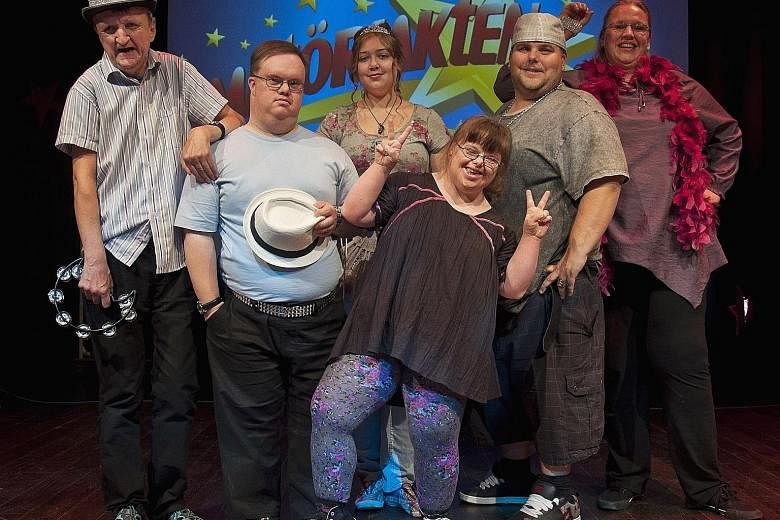Many believe that the intellectually disabled should be shielded as much as possible from public mockery or pity.
Others say that approach stifles potential and want the disabled to take their place in the real world, even if it carries some risk.
In the Swedish drama-comedy The Importance Of Tying Your Own Shoes (PG, 100 minutes), directed and co-written by Lena Koppel, the shelter-versus-exposure argument rages.
New caregiver Alex (Sverrir Gudnason) does not know the rules and takes his group into unfamiliar social situations, including entering them in a talent show. Parents and officials are aghast, saying his group will become figures of pity or worse, ridicule.
"The debate is real," says Koppel, 60, on the telephone from Stockholm, Sweden.
Her film opens the Minds Film Festival 2017 on Saturday and she will be at the second screening on Sunday for a question-and-answer session.
Parents of those with Down syndrome or other intellectual disabilities are especially worried, she says.
-
BOOK IT / THE MINDS FILM FESTIVAL 2017
-
WHERE: Golden Village, 02-30 VivoCity, 1 Harbourfront Walk
WHEN: Saturday to Aug 5, various times; question- and-answer session with director Lena Koppel: Sunday, 7pm; question-and-answer session with director Tunku Mona Riza at the screening of Redha, about a boy with autism: Aug 5, 7pm
ADMISSION: $6
INFO: For tickets and schedule, go to gv.com.sg
"They are afraid that their children will be bullied, or that people will say things behind their backs."
Sweden is no exception to the norm of parents feeling that their disabled children should be kept out of sight as much as possible, despite the country's reputation for social progressivism.
"We are a very accepting people, but I can feel that underneath, there still is a lot of shame, a lot of embarrassment. Sweden is quite a polite society, you should not talk loudly or wave your arms. With disabled people, they don't know if they are too loud or soft. They get noticed," Koppel says.
That feeling of shame is fostered by the tone people take when they talk about the parents of the disabled. Without meaning to, they signal that the child is a burden, a source of suffering.
"People say, 'My friend has a disabled daughter, that must be very tough'. It's sad in a way, because then you've put people in a bracket," the director adds.
The film features actors from Sweden's Glada Hudik Theater, comprising people with disabilities. It also features catchy pop tunes sung by them.
The soloist in the film, Karatina, is played by Ellinore Holmer, 26, a high-functioning autistic person.
"When we were filming, she had to be driven 200m to set. She couldn't walk because of her problems. Today, she's a singer-songwriter, touring the country."


